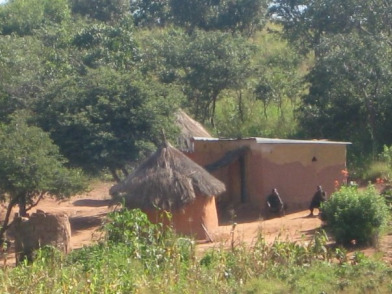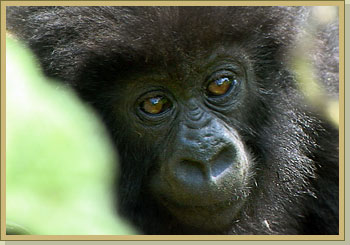Until he extends his circle of compassion to include all living things, man will not himself find peace.
Albert Schweitzer
 Looking to purchase a stuffed animal for the holidays? Umm I have an idea to do something way cooler, more meaningful and honestly you will not sell it in a garage sale 3 years from now.
Looking to purchase a stuffed animal for the holidays? Umm I have an idea to do something way cooler, more meaningful and honestly you will not sell it in a garage sale 3 years from now.
I have a friend that loves primates.LOVES them. She sends me multiple requests every week kindly requesting that I”purchase” her a baby gorilla. A. REAL. GORILLA. Yeah. I know what you are thinking… Now let me be clear I would never actually buy a gorilla just so my friend (whom I promised NOT to name in this post) could have a snuggle friend. While she maybe a little “unorthodox” in her request, I do understand and share her love and respect for these amazing animals. In her honor, the next organization I would like to highlight as a great choice for future support is The Dian Fossey Gorilla Fund International.
GFI is a not-for-profit organization founded by Dr. Dian Fossey to preserve and protect the world’s last mountain gorillas. Originally named “Digit Fund” in memory of Dr. Fossey’s favorite gorilla, the Fund was renamed in 1992 to underscore its commitment to carry on the gorilla protection and research programs established by Dr. Fossey.
Dian Fossey dedicated her life to saving Rwanda’s mountain gorillas. She made her first trip to Africa in 1963, where she met Dr. Louis Leakey at the famous archeological site of Olduvai Gorge. Her life was changed forever from this experience –she found her passion, her mission, her purpose. She let this experience move her to action. Dian Fossey returned to Africa in December 1966, to begin a long-term study of the mountain gorillas. Today, the organization she founded continues her efforts to save the last remaining gorillas of Central East Africa. Dian Fossey’s 41-year legacy continues.
It’s almost January 2010, but gorillas face more threats today than ever before. The future of the gorillas is most dependent on the protection and survival of the forests in which they live, since they depend on this land for food, safety and normal activities. But the forests are often in danger from growing human populations, and from civil war in the region.
To learn more check out this video clip from Gorilla Fund International Gorillas
So now that you have seen the video, here is the question. Will the mountain gorilla survive?
When Dian Fossey started observing the mountain gorillas in the late 1960s, she estimated there were about 250 mountain gorillas in the Virungas. Today it is estimated that there are about 380 mountain gorillas. Gorillas are closely related to humans genetically, and are highly susceptible to a number of human diseases. Some of these can be fatal and others may cause illnesses with severe consequences for the future. Cross transmission of diseases between humans and gorillas is considered a serious health and conservation issue. Becasue of this threat GFI has started financially supporting people programs as well, in order to work with local communities to make sure that all share a healthy environment. Check out this link to learn more: https://bit.ly/SP4ri
The mountain gorilla can survive with our help! Here are some specific ways you can help.
Adopt a Gorilla… an excellent way to help protect the last remaining mountain gorillas is to adopt a gorilla. They also make wonderful gifts for your friends and loved ones any time of year. Proceeds from adoptions directly support the gorillas monitored by the Karisoke Research Center staff. https://www.gorillafund.org/support/adopt.php . You can adopt a baby gorilla for only 50.00 and a mom and baby pair for 100.00. Way cheaper and cooler than some stuffed animals.

SPONSOR A PATROL ….GFI employs a staff of gorilla trackers and anti-poaching patrols at Karisoke, who regularly go into the forest to locate, observe and protect several groups of mountain gorillas in the Parc National des Volcans. They record the gorillas’ location and status, and try to locate and remove snares. Dr. Fossey started this work in the late 1960s and the Fossey Fund has continued it ever since. Snares generally are set by poachers, who are illegally hunting in the forest. Generally, these snares are set for other animals, not the gorillas, but gorillas can still get caught in them. You can help continue Dian Fossey’s front-line gorilla protection patrols to safeguard the last remaining mountain gorillas seven days a week. https://www.gorillafund.org/support/sponsor_patrol.php
COINS FOR CONGO…. GFI has expanded its work into the Democratic Republic of Congo to save gorillas and the many other endangered animals there. But with the ongoing security issues in Congo, many local people are suffering and it is not possible to save the gorillas without providing help and support to the human communities around them. Coins for Congo™ coin drives bring attention to the people and wildlife in the Democratic Republic of Congo (DRC). Donations contributed to Coins for Congo™ will be used in DFGF’s health, education and livelihood programs, as well as to purchase supplies for trackers who protect wildlife. Anyone can hold a coin drive — just look on the floorboard of your car or under your couch seat cushion! To hold a coin drive, simply order a coin drive kit and get started. Easy-Peasy.https://bit.ly/iZmpS
Will the mountain gorilla survive? Why is it important that they do?
Survival of the gorillas depends on survival of the forest and the communities that live within them. It is not possible to save the gorillas without providing help and support to the human communities around them. Their survival and success are connected and both need sustainable, safe, healthy futures to prosper.
Let me leave you with the words of Dian Fossey from her bestselling book Gorillas in the Mist, her words are far more eloquent and powerful than mine could ever be:
When you realize the value of all life, you dwell less on what is past and concentrate on the preservation of the future.”
Gorillas in the Mist
